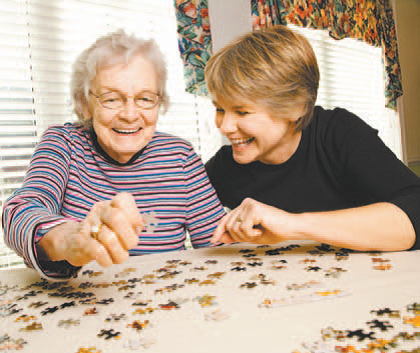AARP Hearing Center

With November designated as National Family Caregivers Month, now is a great time to shine a bright light on the incredible work that these unsung heroes perform every day in an effort to keep their loved ones living in their own homes and communities as long as possible.
Today we are releasing the results of Caregiving in the US 2025, a study revealing that 23 percent of adults in Wisconsin – approximately 1.1 million people – are family caregivers, providing largely unpaid and unsupported care to older parents, spouses, and other loved ones.
When a loved one needs help, family members, friends, and neighbors step up, that’s what we do. But too often, caregivers carry this responsibility alone, often putting their finances, health and jobs at risk. As our state population ages, the demand for care will only grow. With the release of this new data and ahead of the 2026 legislative session, we at AARP WI are urging policymakers at every level to act now to help family caregivers save money, time and get the support they need.
Family caregivers provide $9.2 billion in unpaid care each year in Wisconsin, helping family members live independently at home, which is where they want to be. Their caregiving responsibilities range from bathing and meal prep to managing medications, arranging transportation and handling medical tasks, with little or no training.
But the toll on our family caregivers is great – financially, physically, and emotionally. The new study finds…
--80% of caregivers pay out of their own pockets to help meet their loved ones’ needs, averaging $7,200 each year, or 25% of their income. In Wisconsin, 37 percent of family caregivers report financial setbacks – taking on debt, draining savings, or struggling to afford basics like food and medicine.
--55 percent of Wisconsin’s caregivers are also juggling full- or part-time jobs. Many must reduce work hours or leave the workforce entirely due to caregiving responsibilities, jeopardizing their own long-term financial security.
At the state level we are fighting for common-sense solutions to save caregivers money and time and provide greater support. At the federal level, we are working to save caregivers money through the Credit for Caring Act, a proposed federal tax credit of up to $5,000 for working caregivers, and the Lowering Costs for Caregivers Act, which would expand flexible spending and health savings account uses.
If you are a family caregiver, it's important to know that you're not alone and that resources are available to help. To access free caregiver tools and local resource guides, visit:
--AARP’s state-by-state Family Caregiver Resource Guides to help family caregivers access key programs, services, and agencies right in their community.
--AARP’s online Caregiving Hub with tools and information available in English and Spanish.
--AARP and United Way Worldwide’ s 211 program connects family caregivers to essential local services for themselves and their loved ones via the 211 helpline.
--AARP’s official caregiving Facebook group serves as a place for family caregivers nationwide to connect, share practical tips, offer support, and discuss their shared experiences.
For more information and state-level caregiving profiles, visit: Caregiving in the U.S. 2025: Caring Across States.































































